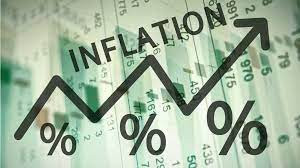
THE United States Agency for International Development (USAid) has warned of more price increases this year.
The year opened with a spate of price increases on goods and services across the economy as new government taxes, fees and levies took effect.
“In December, ZimStat [Zimbabwe National Statistics Agency] reported that headline and monthly inflation rose to 26,5% and 4,7%, respectively. The cost of living, as measured by the ZimStat food poverty datum line and total consumption poverty line for December, has also increased by about 22% since November,” USAid said in its latest food security update for the December 2023 to January 2024 period.
“Significant ZWL (Zimdollar) and USD (United States dollar) price increases were recorded for most basic food commodities in December, including maize grain, maize meal, cooking oil, sugar and vegetables, while above-normal price increases were recorded for non-food items, including services such as transport fares and rentals.”
USAid continued: “In the 2024 national budget presentation in early December, the government re-introduced duties on selected basic food and other commodities that had been exempted from import duty in April 2023 when the government tried to stem high basic commodity prices and shortages.
“Additional taxes in the 2024 budget statement are expected to drive price increases for food and other non-food commodities in 2024.”
USAid said government had also stipulated
that only registered and tax-compliant informal sector retailers could procure goods from producers and wholesalers, a move that has since been reversed.
- ‘Inflation could shoot to 700% by April next year’
- New perspectives: Inflation control critical for economic growth
- Inflation spike: Why interest rates aren’t the answer
- Village Rhapsody: Govt must ensure that devolution works
Keep Reading
“Due to lower prices than formal retailers, the informal sector has increasingly become the preferred source of food and non-food items, especially for poor households,” USAid said.
Vat exemptions on specified goods and services were given to medicines and medical services, goods for use by the physically challenged and sanitary wear.
Others include fuel and its products, agricultural inputs, implements and produce (excluding live animals, groundnuts, cotton seed, soya beans and products thereof), wheat (excluding bread), milk and salt.
“Panic purchases and grain hoarding by households and traders will likely dry up the grain markets earlier than anticipated, even in surplus-producing areas, continuing to drive price spikes,” USAid said.
Panic purchases and grain hoarding is being caused by the anticipation of further price hikes of goods and the continued effects of the El Nino-induced drought.
The government has since made adjustments to its initial revenue measures such as exempting bread, milk, cooking oil, mealie-meal, salt, sugar and flour from Vat.
Further, other basic commodities that include meat, rice, bath and laundry soap, washing powder, toothpaste and petroleum jelly have been moved to standard rating which government envisions should have “minimal” price increases.
Cotton seed and soya beans and its derivative products have also been included in the Vat exemption schedule.






